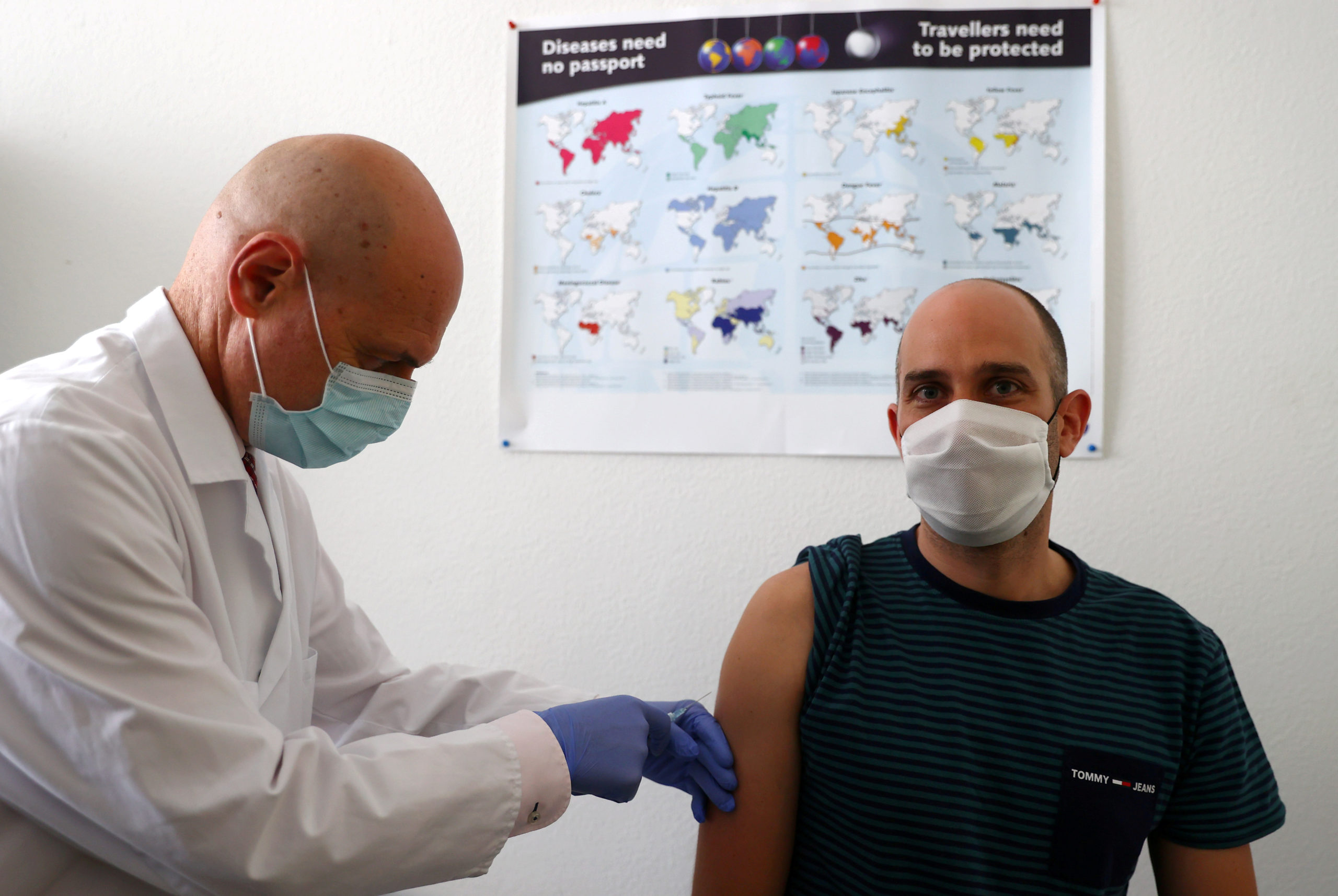
FILE PHOTO: Professor Gottfried Kremsner injects a vaccination against the coronavirus disease (COVID-19) from German biotechnology company CureVac to a volunteer at the start of a clinical test series at his tropical institute of the university clinic in Tuebingen, Germany, June 22, 2020. REUTERS/Kai Pfaffenbach
BRUSSELS– The European Commission and German biotech firm CureVac said on Thursday they had concluded a first round of talks for the supply of at least 225 million doses of a potential COVID-19 vaccine to EU states.
The European Union’s executive arm is also in talks with Johnson & Johnson and Sanofi for their vaccines under development, and agreed last week an advanced purchase deal with AstraZeneca for at least 300 million doses of the shot it is developing with Oxford University.
“Each round of talks that we conclude with the pharmaceutical industry brings us closer to beating this virus. We will soon have an agreement with CureVac,” the EU Commission President Ursula von der Leyen said, confirming a Reuters report in July.
The EU will now begin negotiating a contract with CureVac, which could be the company’s first bilateral supply deal, aimed at securing the vaccine for all 27 EU member states should the shot prove safe and effective.
CureVac said on Thursday the talks included an option to supply 180 million additional doses.
The company’s shares rose almost 8% in premarket trade on Thursday, having soared as much as 222% after its Nasdaq debut last Friday, the first by a company developing a COVID-19 vaccine.
EU officials told Reuters last month that the Commission was also in talks with U.S. biotech firm Moderna and German firm BioNtech, which is developing a vaccine with U.S. pharmaceutical company Pfizer.
CureVac’s approach is based on so-called messenger RNA, pieces of genetic code that prompt human cells to produce therapeutic proteins. Moderna and BionTech are using similar technology.
CureVac said it could start large-scale human trials on its vaccine in the last quarter of this year based on results of its current trials.
The Commission said funding would be provided through an EU emergency fund, of which around 2 billion euros ($2.37 billion) can be used to finance advance purchase deals, officials have told Reuters.
In its talks with vaccine makers, the EU usually offers to finance some upfront development costs in exchange for the right to quickly obtain doses of successful candidates. Actual purchases would be decided at a later stage by each EU state.